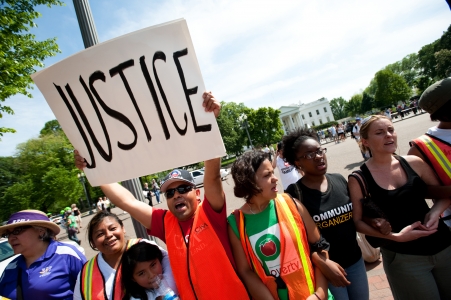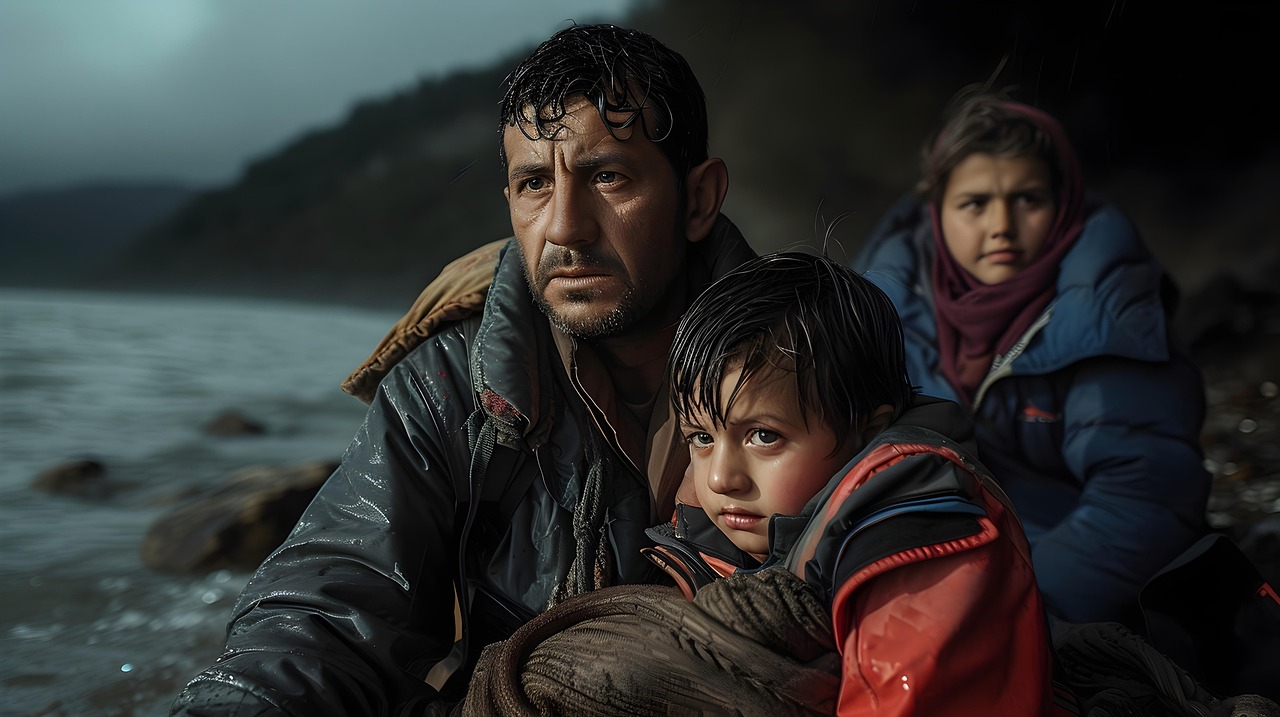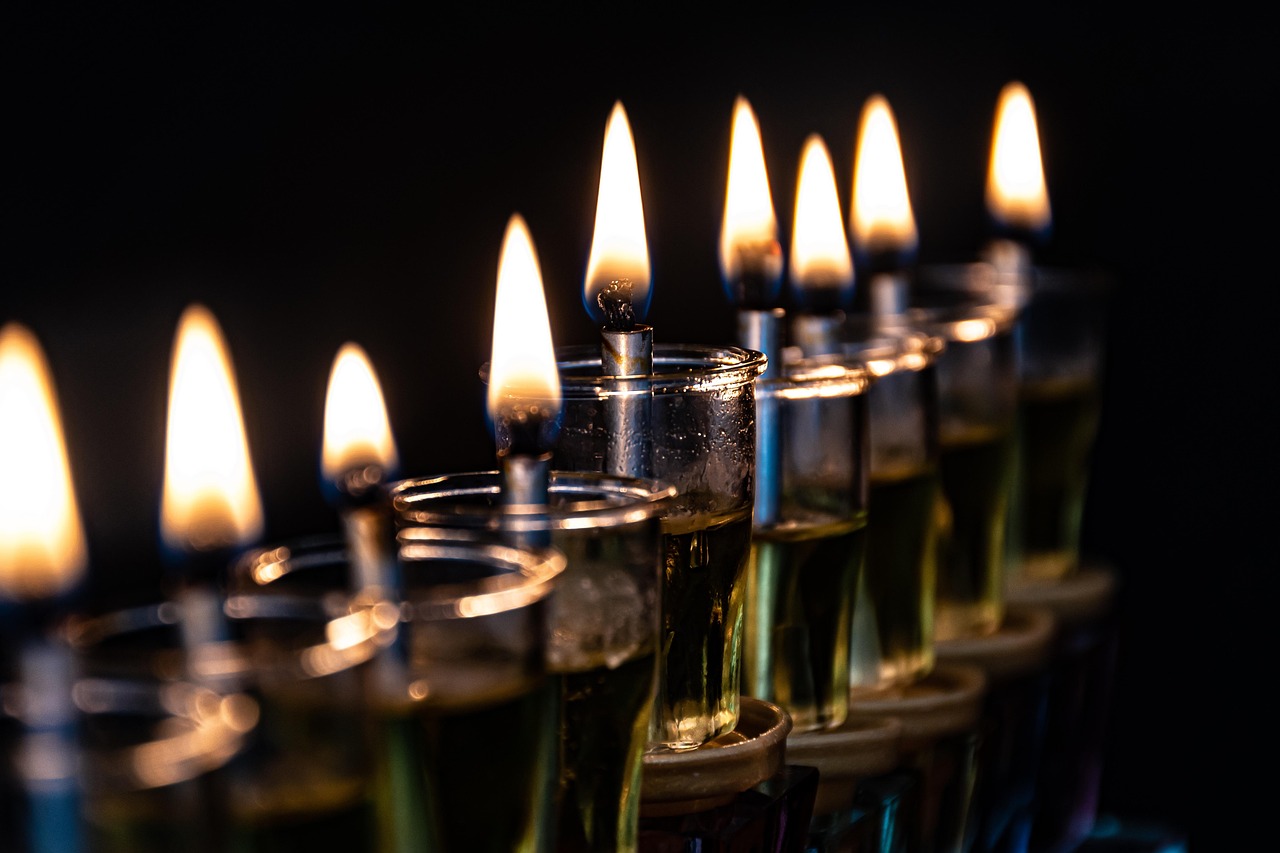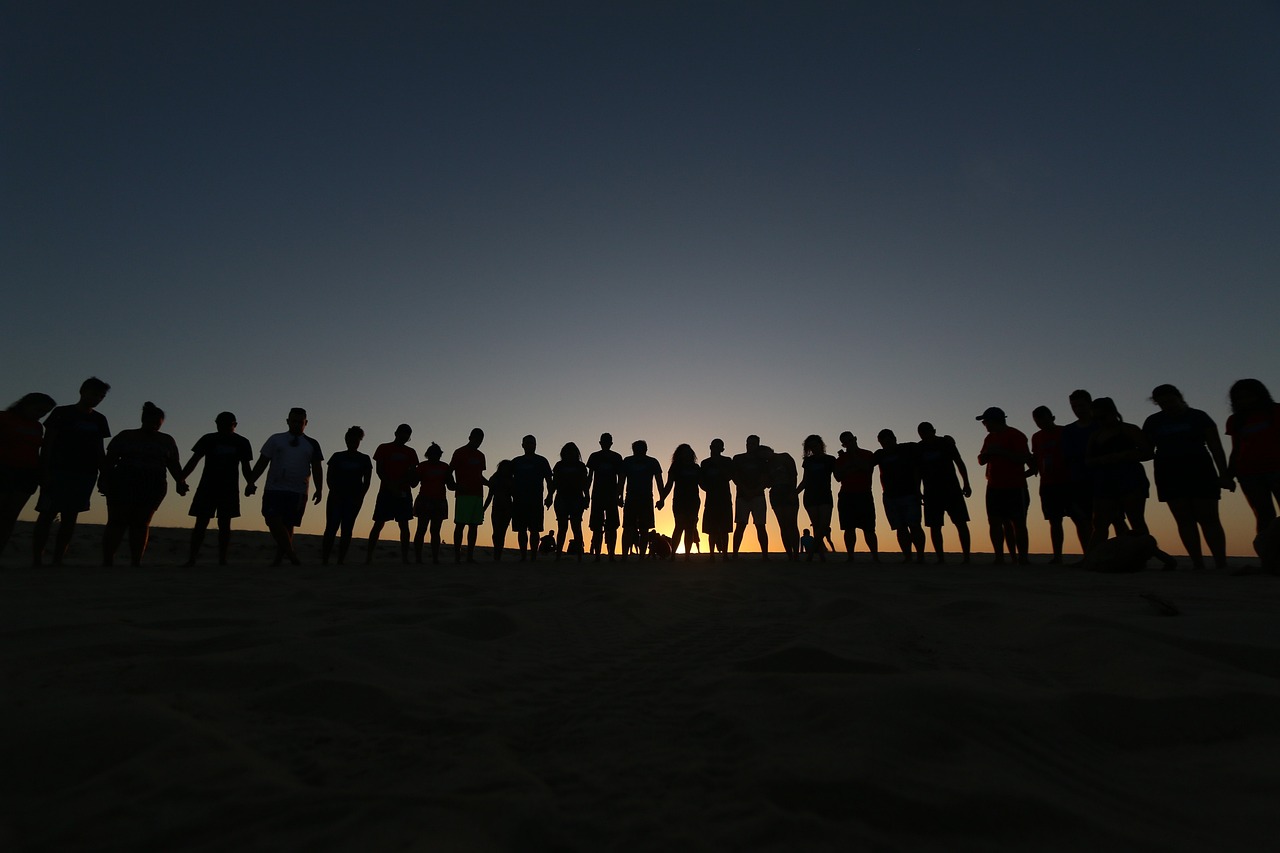These public remarks were delivered by Rabbi Tamara Cohen in front of ICE offices in Philadelphia on Tisha B’Av 5778 (July 22, 2018). They were reformatted into poetic form by Rabbi Maurice Harris.
For these things I weep:
All over the world our sins.
All over the world our sins are creating wanderers
hungry and fleeing
fleeing and dreaming
dreaming of life in the way one does when they have tasted the very real possibility of death
dreaming of freedom as only those do who have tasted slavery
torture
rape
displacement
hot iron to skin
stabbing knives
disappeared loved ones
dream.
For these things I weep:
when the sacred sanctuary of our ancient Temple was destroyed
part of God left too
like a parent separated from her children, She cried and cried
and could not be consoled
she became a refugee
Shekhinah
a wanderer
a dweller in camps for the displaced, the homeless, the war weary
she found sanctuary
in the hearts of migrants
clutching the hands of small children
with more hope than fear
because they need to believe
it can be, will be better for them one day.
Lamentations got it wrong but also right,
there is “no pain like my pain.”
No, there is nothing exactly like Syria destroyed
nothing exactly like Sudan torn apart
nothing exactly like Guatemala bleeding
nothing exactly like Congo crying
nothing exactly like Mynmar eating her children
but also tell me
isn’t the sound of a child crying Mami, Mami
the same as the sound of a child crying Baba, Baba?
and wasn’t the hope in the heart of my grandfather
alone on a ship to Canada from Lithuania
the same as the hope in the heart
of every desperate parent
paying money to the coyotes?
and tell me this
do you hear the walls of the detention centers shaking with our sins?
and do you see the eyes of the ICE officers frozen and their hearts?
Carrying out orders
our history cries out against those just carrying out orders.
All my friends have become enemies, the lamenting Jewess cries
that’s us now
we have become, are becoming enemy
safe haven no more
we sit in our own mess
our skirts are sullied
our flag unclean
we have been exposed
and in our nakedness
we fill with shame
at how we are daily betraying
our immigrant and refugee ancestors
no one is coming to save us from ourselves
for we have become a fortress
an island
a polluter
a prison
a wall
a henchman
a murderer.
See how we return women to their abusers
see how we send children to jail
and return orphans to certain death.
For these things do I weep
My eyes flow with tears:
Far from me is any comforter
Who might revive my spirit.
Eichah: how can it be?
How can it be that this is what our nation is?
That the fear of who we are becoming
as a non-majority white nation
is so strong, so deep
that we are barricading our borders
as if we can stop change
as if we can stop our own suffering
by causing more suffering to others
as if the whole world weren’t one
as if each person weren’t a human being in the image of God.
Eichah our tradition teaches us is also Ayeka.
God’s very first question: where are you?
We are here today outside an ICE office
because this is a river of Babylon
this is a place of tears
this is a place of families torn apart
this is a site of exile
we are here today to grieve
and tomorrow we will not just grieve but act.
Today we are here.
And we must be here.
At ICE offices
at detention centers
we place ourselves with refugees
we know
we remember
this is our place.
In grief
in resistance
in despair
in hope
this is our place.













